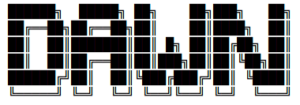
Hi,
I’m Nick. I study Computer Engineering at the TU Berlin. It is my first time participating in Google Summer of Code. I am realizing a decentralized WiFi controller.
DAWN is the first decentralized WiFi controller for OpenWrt. The controller provides access to valuable information, e.g., all connected stations, their capabilities, and information about all participating nodes. Moreover, DAWN provides load balancing to increase the network performance by controlling the clients association.
What’s missing?
An important aspect of the controller is the simple installation. Everybody, even people with limited technical knowledge, should use this controller to increase their network performance at home. Until now, DAWN requires a special patched OpenWrt to run. So a user needs to compile his own image. The first thing I have to do is to bring the last patches upstream. Some of the patches were rejected and that is why I have to rewrite different functionality and create new pull requests. Furthermore, I have to extend the libiwinfo library to get all necessary informations from the OpenWrt system.
After this, the configuration of the nodes should be simplified. So far, the user has to configure all participating nodes individually. I want to implement some bootstrapping to automatically configure the participating routers.
After simplifying the installation and configuration, I want to visualize the information of the participating nodes with a graphical user interface.
The last step is to improve the controller functionality by adding mechanisms like a channel interference detection and other useful features. Moreover, this step contains to improve the load balancing.
In my next blog post, I will write about why some of my OpenWrt patches were rejected, how I have to extend the libiwinfo. However, if this steps are successful everybody will be able to simply install DAWN without the need to patch OpenWrt.

![image 11 [250 x 146 Pixel @ 7,4 KB]](http://www.heise-online.co.uk/images/110278/10/0)
